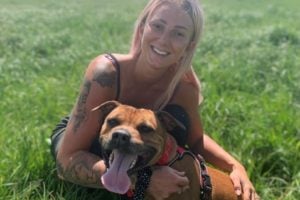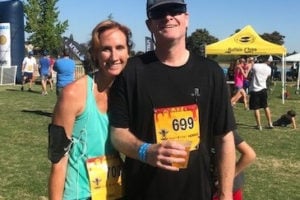In September 2020, at the age of 24 and in good health, one week away from graduating with my master’s degree, I nearly lost my life.
I woke up one day with a headache slightly worse than normal. Over a week, things got worse until I was in more pain than I had ever experienced or thought possible. In addition to the headache, I also had visual and auditory disturbances, numbness in parts of my body, and extreme nausea. The most terrifying symptom was my altered mental state, and not being able to figure out how to open a car door.
I went to the emergency room three times, and three times I was sent home and told I was fine and that it was just a migraine. After my dad found me unconscious on my bathroom floor, he took me back, and they finally agreed to admit me. They assured me I was fine and would be discharged the next day. I was not fine.
A CTA scan of my brain found multiple massive blood clots, also known as cerebral venous sinus thrombosis, or CVST, which were blocking blood flow from my brain. By accident, the brain scan also saw the top portion of my lung where they found a pulmonary embolism or PE. The second scan of my lungs found an additional PE. After extensive testing, my doctors believe my clots were caused by birth control pills, which is the same pill I had been on for eight years. I had no other risk factors.
As of May 2021, some of the clots in my brain have gone away, but others have become residual. Thankfully, all have good collateral blood flow, and I am beginning to transition off blood thinners. The emotional toll of nearly losing my life has been the most challenging part. I struggle with post-traumatic stress disorder or PTSD, and severe anxiety related to my health. Reading other survivor stories has brought comfort that I am not alone.
My biggest wish is for people to educate themselves about the symptoms of blood clots so that if it happens to you, you can quickly identify it and potentially save your life or the life of someone you know. What happened to me is exceedingly rare, but it does happen.
Resources
- Join our online peer support community to connect with other people who have experienced a blood clot.
- Learn more about blood clot risk factors, signs and symptoms, and prevention.
- Read more stories, or share your story with NBCA.




